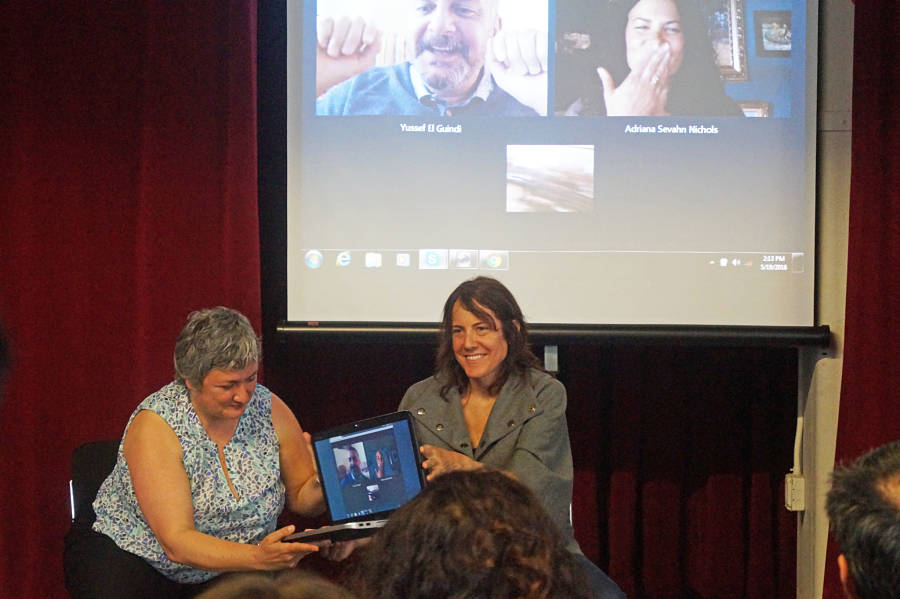NEW YORK CITY: Last Thursday afternoon, May 19, as part of a two-day convening on Middle Eastern American theatre, playwrights Adriana Sevahn Nichols, Yussef El Guindi, and Mona Mansour gathered at the Lark’s midtown headquarters to discuss the impact of the Middle East America fellowship, bestowed on them over the past few years by the Lark, San Francisco’s Golden Thread Productions, and Chicago’s Silk Road Rising. The honor, given toward the completion of a play with a Middle Eastern playwright and protagonist, comes with a $10,000 purse, plus developmental work with each company in their respective cities and advocacy of the play and playwright.
Nichols, the 2009 recipient, wiped tears from her face as she shared her experience with Night Over Erzinga, which was inspired by her grandparents’ survival of the Armenian genocide and was produced in Chicago, San Francisco, New Jersey, and finally Armenia. Said Nichols: “It’s incredible to look back and say, ‘Wow, look at what we all did.’” She joined the conversation via a Google Hangout, while Vartan Garniki Oganesian, who directed the Yerevan production and translated the play into both Eastern and Western Armenian, was on hand in person. He discussed the Armenian premiere, timed with last year’s 100th anniversary of the genocide and attended by an audience still roiling from the impact. “Staging it put those spirits to rest,” he said.
El Guindi, the 2011 recipient, humbly discussed the outcome of his commission, The Mummy and the Revolution, which he’d begun writing with a hopeful spirit in the early euphoria of the Arab Spring, only to find it dated by the time he was finished writing. “Current political events over took the project—made the play moot,” El Guindi lamented, also via the Google Hangout video. “I couldn’t rewrite it; I couldn’t, like, add a coda.” He called the experience “a good lesson” in the complexity of writing in the times in which one is living in direct response to events.
Mansour, the 2014 recipient, said that she’s still early in her writing and researching process on a play inspired by her relationship with her pro-military nephew, the son of her brother, who “doesn’t know how long the Ottoman Empire lasted.”
Jamil Khoury, artistic director of Silk Road Rising, said that the three-company fellowship grew out of multiple concerns and goals: the history of “bad or mis- or no” representation of Middle Eastern American characters on America’s stages; the exclusion of Middle Eastern and Middle Eastern American playwrights in the mainstream American theatre; and the dearth of financial support for Middle Eastern American playwrights. “We wanted to stage an intervention of sorts in the larger theatre ecology,” he said, “and also serve as a vehicle for promoting individual artists.”


